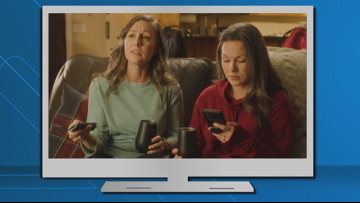CHARLOTTE, N.C. — While many people will eat, drink, and be merry this weekend, there is one danger that actually rears its ugly head more during the holidays than the rest of the year.
New information from the American Heart Association shows a spike in heart-related deaths during the winter holidays.
THE QUESTION
Do deaths from heart attacks spike during the winter holidays?
THE ANSWER
Yes, deaths from heart attacks spike during the winter holidays.
OUR SOURCES
WHAT WE FOUND
"There are actually more heart attack deaths on Christmas Day followed by the 26th and New Year's Day than any other day in the rest of the year," Kohli said.
A British Medical Journal study reviewed more than 16 years of data on heart attacks among people in Sweden and found there was a 15% increase in heart attacks during the winter holidays. Heart attacks increased by 37% on Christmas Eve.
"Cold weather has something to do with it; cold weather can trigger inflammation," Kohli said.
The American Heart Association also points to stress and diet as contributing factors to the increase.
"We radically change our lifestyle over the holidays," Kohli said. "We drink a lot more alcohol drink a lot more sodium, and portions of what we are consuming are a lot more."
Another main reason for the rise in heart attack deaths is that people are not getting help quickly enough.
"People don’t actually recognize their heart attack symptoms as well over the holidays and we feel a little hesitant about disrupting our family," Kohli said.
The American Heart Association wants you to know these five warning signs of a heart attack: pain or discomfort in the chest; nausea or vomiting; jaw, neck or back pain; discomfort or pain in the arm or shoulder; shortness of breath.
Kholi says if you feel something is not right, don’t wait. Call a doctor.
Contact Meghan Bragg at mbragg@wcnc.com and follow her on Facebook, X and Instagram.
WCNC Charlotte's Verify series is all about trying to make a difference in the Carolinas by making sure the community has the correct information. WCNC Charlotte outlines concisely what we know and what we don't know. Sometimes the answer can be surprising. Watch previous stories where we verify social media claims in the YouTube playlist below and subscribe to get updated when new videos are uploaded.
VERIFY is dedicated to helping the public distinguish between true and false information. The VERIFY team, with help from questions submitted by the audience, tracks the spread of stories or claims that need clarification or correction. Have something you want VERIFIED? Text us at 704-329-3600 or visit VERIFY.












